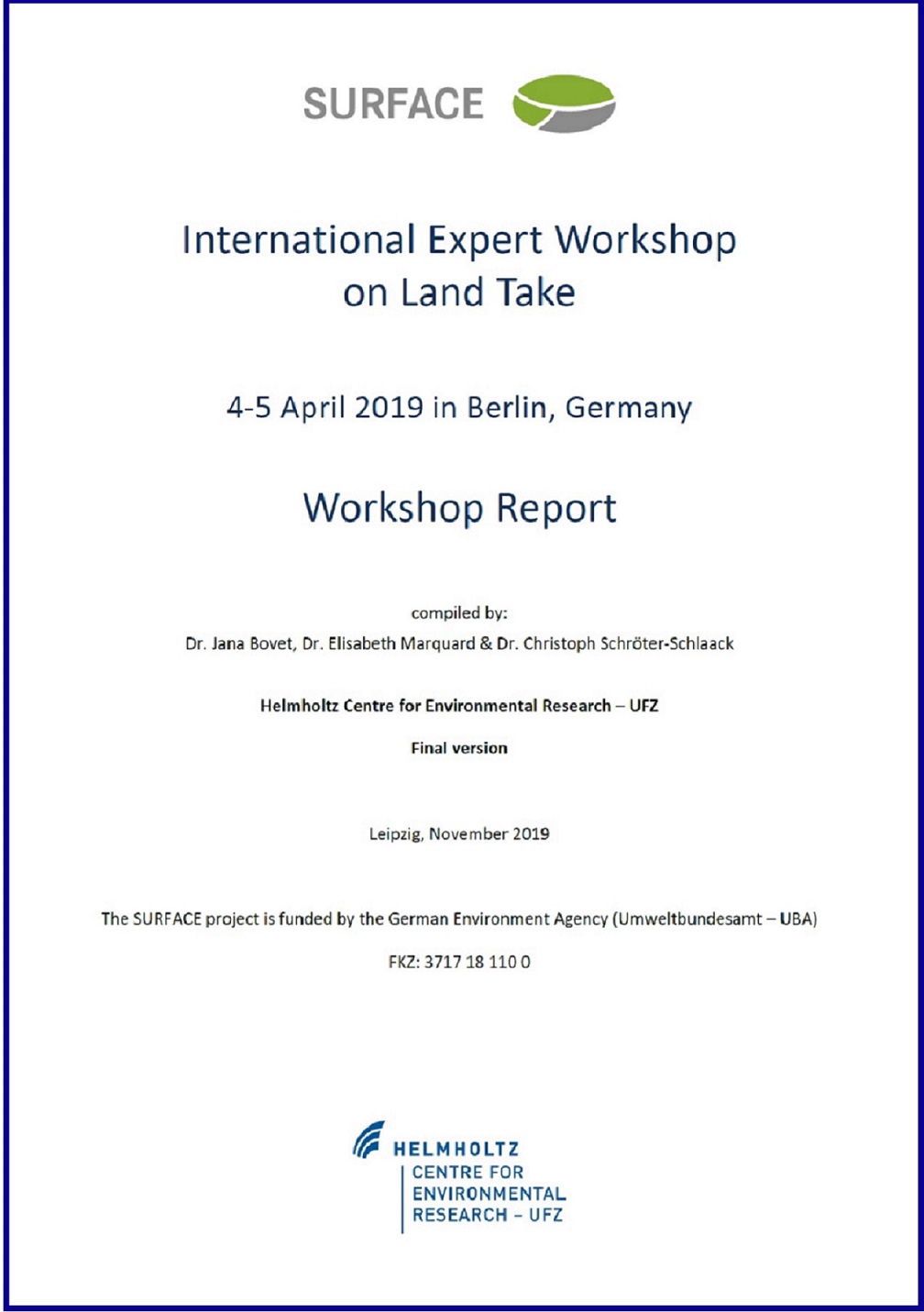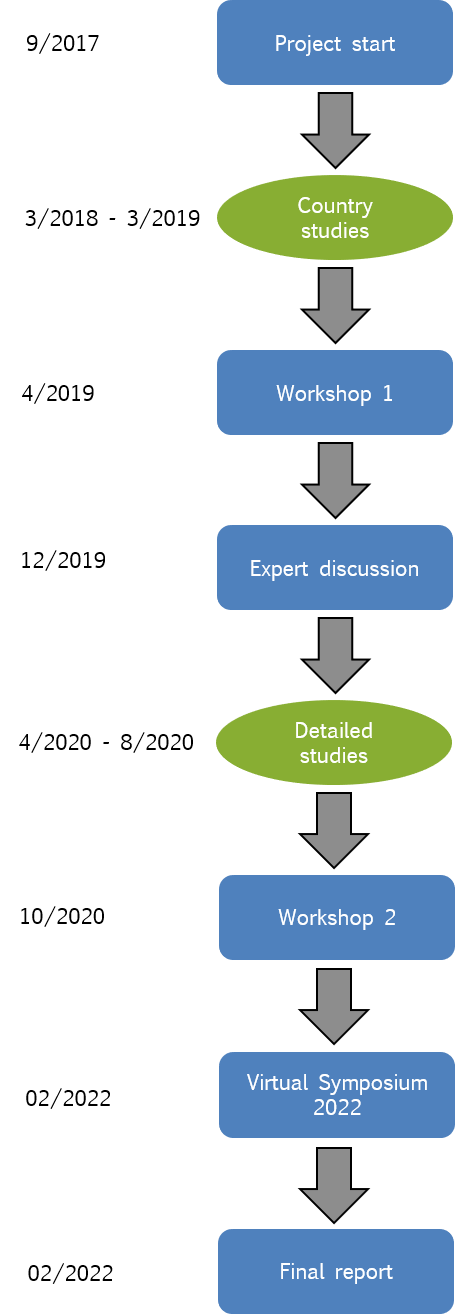Study Approach
The core parts of SURFACE are two empirical studies which gather international and country-specific/national strategies for the reduction of land consumption and monitoring. They are based on expert interviews and literature research.
For the first study, national targets and policy instruments as well as the role of international treaties and objectives were surveyed in 21 countries. Essential objectives and strategies on European level have been factored in too. The inquiry identified established legal and economic strategies in the European and non-European world. Not only national instruments and approaches but also planned or scientifically discussed actions have been revealed. The results have been discussed at a workshop in April 2019 in Berlin.
Experts from the following countries took part in the first SURFACE survey:
European countries
Non-European countries
- Austria
- Belgium
- Czech Republic
- Denmark
- Estonia
- France
- Germany
- Greece
- Italy
- Netherlands
- Poland
- Portugal
- Romania
- Slovak Republic
- Slovenia
- Spain
- Switzerland
- Australia
- Brazil
- Canada
- China

At a workshop on 4-5 April 2019 in Berlin, the authors of the country studies met to discuss the different starting situations and governance frameworks for reducing land take. Discussion and a first analysis of the country studies are summarised in a report.
Following the country studies, a second questionnaire survey was conducted in which experts from ten EU member states and the United Kingdom assessed progress towards the EU target of "no net land take by 2050" in their countries. The survey focused in particular on how Directive 2014/52/EU has been implemented at national level. This revised directive explicitly states for the first time that environmental impact assessments (EIAs) must take land into account as well as soil. In this regard, the results of the survey indicate that the inclusion of the factor land in EIAs has had limited impact to date. Against this backdrop, the study discusses potential reasons for this observation, identifies persistent challenges in effectively addressing land take, and highlights opportunities to reduce barriers to the European goal of "no net land take by 2050."


